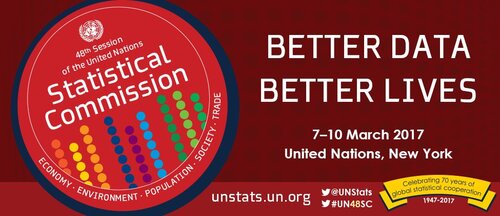UHC2030 hosted its annual UHC Day parliamentarian town hall to...
13 March 2017
Advocacy success to influence UN Statistical Commission decision

On 7-10 March 2017, the 48th UN Statistical Commission agreed the global indicator framework for the Sustainable Development Goals and the targets of the 2030 Agenda for Sustainable Development.
The global indicator framework will be formally adopted by the United Nations General Assembly through the United Nations Economic and Social Council in 2017.
The framework now includes two indicators to measure progress towards Universal Health Coverage (UHC).
3.8.1 indicator Coverage of essential health services
3.8.2 indicator Proportion of population with large household expenditures on heath as a share of total household expenditure or income.
This is a major achievement following intensive discussions in 2016.
The decision to revise 3.8.2 is an outcome of hard work by IHP+ Signatories, civil society organisations and researchers who have advocated strongly for the UHC monitoring framework.
Other news and blogs about UHC indicator advocacy
- WHO UHC Data Portal: Supporting the Universal Health Coverage Coalition
- World Bank: Health and the SDGs: Out of the doldrums, heading for the rapids
- WHO: Universal Health Coverage: Unique challenges, bold solutions
- Rockefeller Foundation: Ahead of World Health Day, 3 questions for a UHC proponent
- Save the Children: INSURANCE IS NO ASSURANCE: WHY THE SDG INDICATORS NEED RESCUING
- Oxfam International: Will the SDG indicator group make Universal Health Coverage indicator fit-for-purpose?
- Devex News published an article How should we measure access to health care?
- The Elders: speech of Dr Gro Harlem Brundtland, the former Director-General of WHO and the deputy chair of the Elders
- Open letters to IAEG-SDGs: from 96+ civil society organisations and from 351 health researchers
More UHC2030 News
A global health financing emergency threatens progress toward...
UHC2030 at HSR2024: Advancing equity and inclusion in health systems through civil society knowledge
UHC2030, in collaboration with the SUPPORT-SYSTEMS research...
